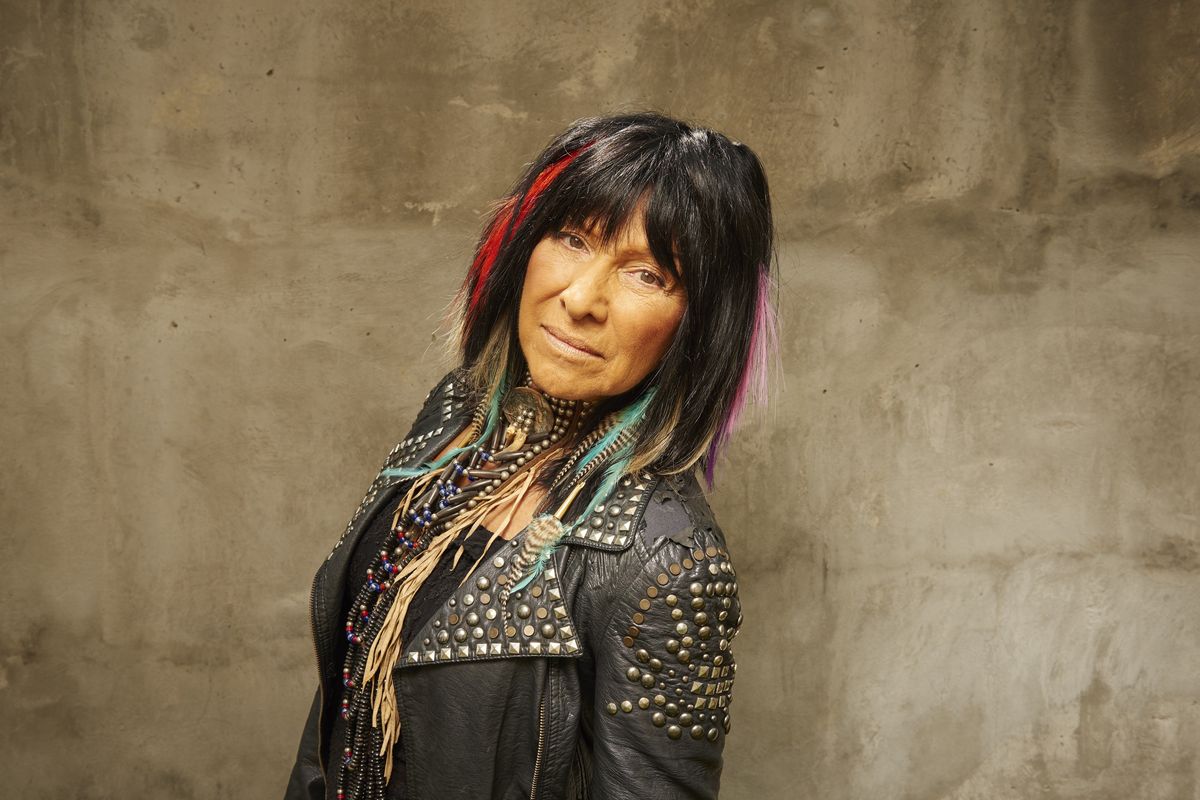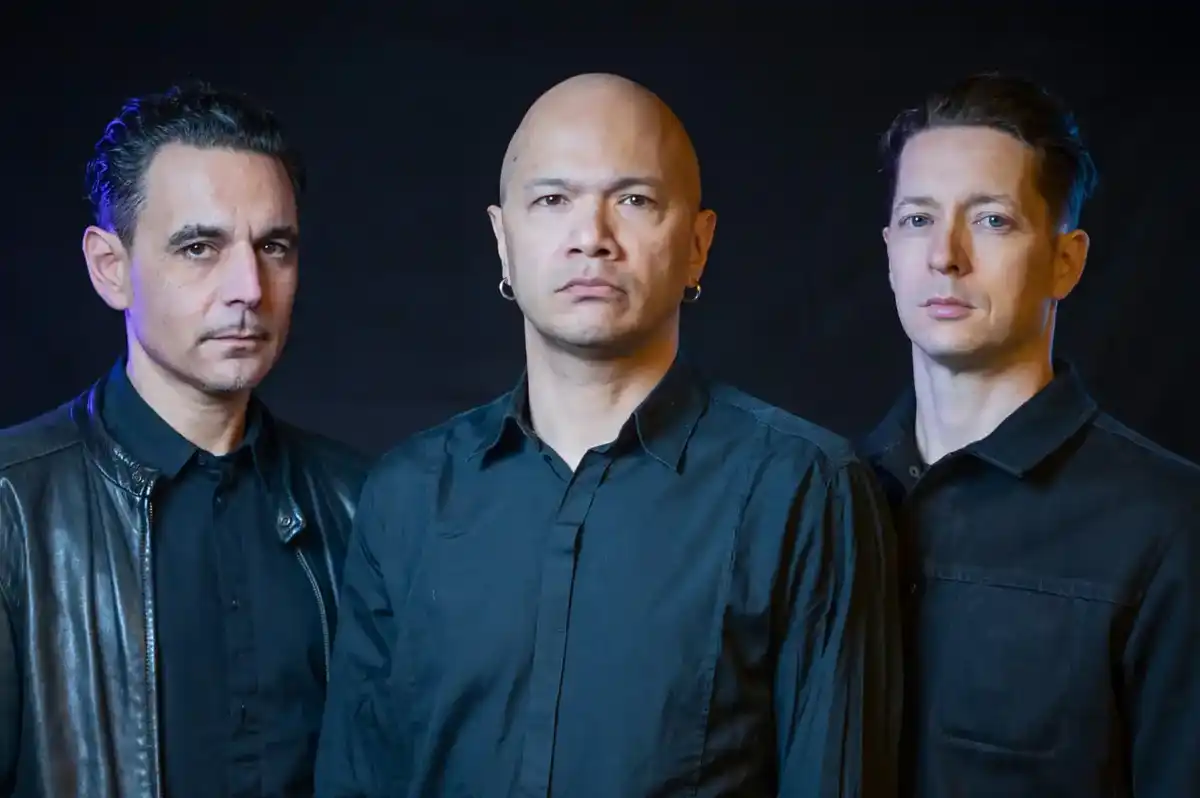New Investigation Questions Indigenous Identity of Buffy Sainte-Marie
The Canadian Broadcast Corporation documentary, streaming on YouTube, has drawn responses from the singer-songwriter and her family and initiated a bigger conversation about Indigeneity.

Buffy Sainte-Marie
A new Canadian Broadcast Corporation (CBC) investigation calls into question the Indigenous identity of singer-songwriter Buffy Sainte-Marie. It’s already opened up a broad conversation about identity and appropriation.
The bombshell investigation aired today (Oct. 27) on the YouTube channel of the program The Fifth Estate and will be available to stream on CBC Gem starting at 9 p.m. tonight.
Investigating Buffy Sainte-Marie’s claims to Indigenous ancestry - The Fifth Estate
Sainte-Marie is one of Canada’s most decorated musicians. The artist and activist has won the Polaris Music Prize, multiple Juno Awards, an Academy Award for Best Original Song, and is the recipient of the Order of Canada and the Governor General’s Performing Arts Award.
She was named Billboard’s Best New Artist in 1964. She’s been recognized as a champion of Indigenous rights on an international level, from the stage to Sesame Street, where she educated children about Indigenous culture starting in the mid-1970s.
The documentary, however, says some of Sainte-Marie’s family members believe her claim to Indigenous heritage “is built on an elaborate fabrication.”
Sainte-Marie has previously said that she was adopted by her parents, Italian-Americans Albert and Winnifred Santamaria, and grew up in the predominantly white Christian suburb of Wakefield, Massachusetts. Later, as a young adult, she was adopted by Emile Piapot and Clara Starblanket Piapot of the Piapot First Nation in Saskatchewan in accordance with Cree law and customs.
She has mentioned that her mother, who she has said was part Mi’kmaq herself, told her that she was Indigenous and that there was no documentation of her birth. In a 2018 interview on CBC’s Q, she attributed this to the Sixties Scoop, a time in Canadian history when Indigenous children were removed from their homes and put up for adoption.
The documentary, which was made without participation of Sainte-Marie herself, features an interview with her younger cousin Bruce Santamaria, who disputes her claim of adoption. It also features quotes from other family members, including references to alleged sexual abuse. The investigation hinges on her birth certificate, which CBC obtained, which lists her presumed adopted parents as her birth parents and her race as white.
“I can say absolutely with 100% certainty that this is the original birth certificate. Beverly Jean Santamaria [later nicknamed Buffy] was born in Stoneham, Mass., at New England Sanatorium and Hospital on Feb. 20, 1941,” says Maria Sagarino, the town clerk in Stoneham.
Sainte-Marie’s lawyer contends that children adopted in Massachusetts were commonly issued new birth certificates with their adopted parents' names (which the clerk denies).
Ahead of the investigation, Sainte-Marie put out a video in which she affirms herself as “a proud member of the Native community with deep roots in Canada.” She also put out a written statement entitled “My Truth As I Know It.”
“It is with great sadness, and a heavy heart, that I am forced to respond to deeply hurtful allegations that I expect will be reported in the media soon," the statement reads. "Last month, the Canadian Broadcasting Corporation contacted me to question my identity and the sexual assault I experienced as a child. To relive those times, and revisit questions I made peace with decades ago, has been beyond traumatic.”
“I am proud of my Indigenous-American identity, and the deep ties I have to Canada and my Piapot family.” In her statement, Sainte-Marie says she was told by her mother while growing up that she was adopted, and that later in life her mother told Sainte-Marie she may have been “born on the wrong side of the blanket,” a phrase typically used to indicate a child born to unmarried parents.
“For a long time, I tried to discover information about my background,” Sainte-Marie says. “Through that research what became clear, and what I’ve always been honest about, is that I don’t know where I’m from or who my birth parents were, and I will never know.”
CBC contextualizes the investigation within a recent series of revelations around high-profile figures whose claims of Indigenous identity have been disputed, including filmmaker Michelle Latimer and author Joseph Boyden and a number of academics.
These thorny cases, often called “Pretendians,” have initiated conversations around who gets to claim Indigeneity and for what end – often to claim benefits or opportunities or shield themselves from criticism. Some Indigenous commentators are wondering whether Sainte-Marie meets the criteria to warrant this kind of scrutiny, and who should get to do it.
Two members of the Piapot family also released a statement, affirming their kinship with Sainte-Marie.
“We grew up knowing that Buffy and our grandparents adopted each other and how deeply committed and loving they were to one another,” the statement from Debra and Ntawnis Piapot says. “Buffy is our family. We chose her and she chose us.”
“No one, including Canada and its governments, the Indian Act, institutions, media or any person anywhere can deny our family’s inherent right to determine who is a member of our family and community,” the family states.
The statement emphasizes the importance of Indigenous sovereignty in determining who can claim Indigenous identity. “Join us in protecting our right to uphold who we claim as family through our traditions and natural laws.”
Responses on X have pointed out that using government records to determine Indigenous identity can be fraught. In Canada, the Indian Act has historically been used to exclude people with clear Indigenous heritage from achieving “Indian Status” under Canadian law.
Many commentators have expressed that the investigation is painful for Indigenous communities.
Others are asking who the investigation serves.
In the CBC investigation, Native studies professor Kim TallBear says she hopes the investigation will be a turning point when it comes to the phenomenon of white settlers claiming Indigenous heritage.
“This one should make it obvious that we have a real problem we have to address and that organizations and institutions and governments need to get on board and figure out how to stop this problem,” she said.
“And if it doesn’t happen after this case, then I don’t know where we go.”
Buffy Sainte-Marie, who is 82, retired from touring earlier this year for health reasons.

















